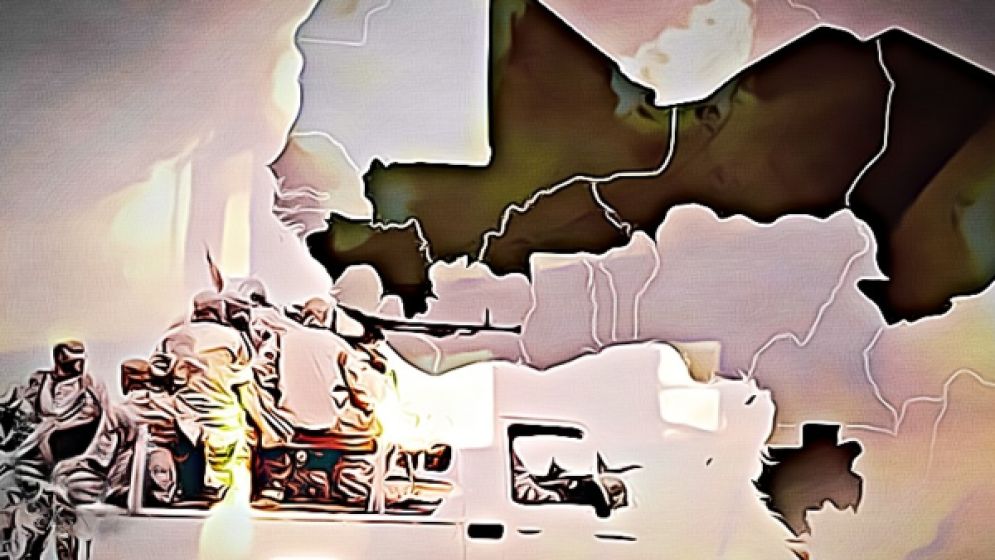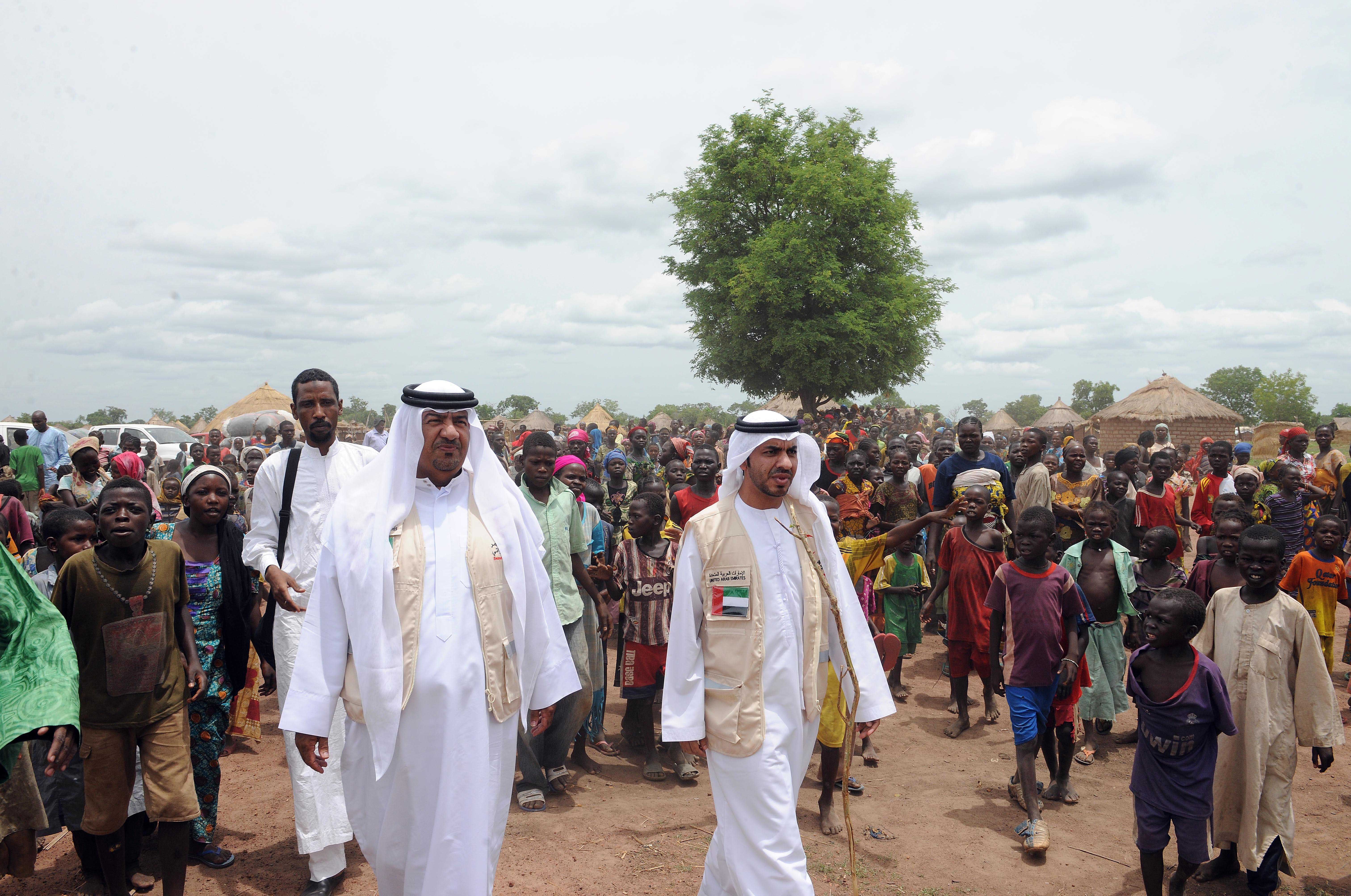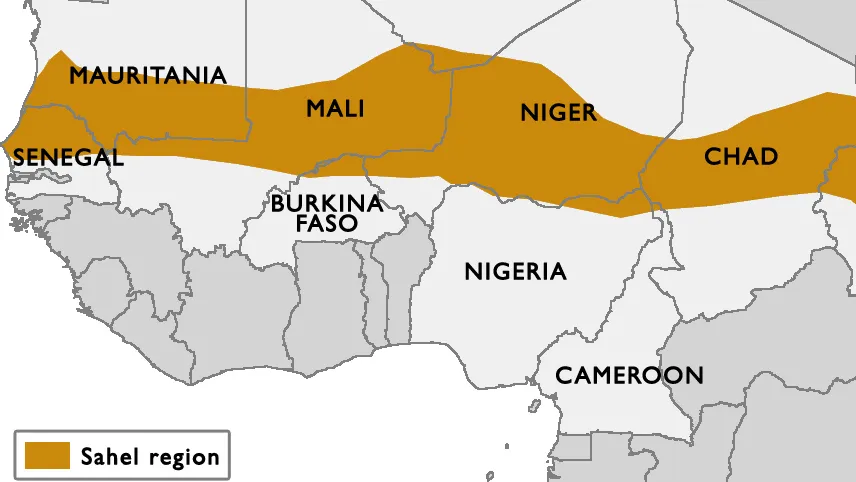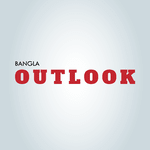Does the UAE's growing influence in Africa's Sahel signal a new regional dominance?

A heated exchange erupted at the United Nations on June 19 between Sudanese ambassador Al-Harith Idriss and UAE ambassador Mohamed Abushahab.
Idriss accused the UAE of complicity in war crimes against the Sudanese people, while Abushahab dismissed the allegations and criticized Sudan's absence from the Jeddah peace talks.
While Sudan's non-participation in the peace talks is factual, mounting evidence suggests the UAE's involvement in fueling the ongoing conflict in Sudan.
The Rapid Support Forces (RSF), a rebel paramilitary group backed by the UAE, has been widely accused of perpetrating extensive human rights violations since the conflict began in 2023.
Karim Khan, the chief prosecutor of the International Criminal Court (ICC), has revealed that investigators have found credible allegations of widespread crimes against humanity in El-Fasher, the capital of North Darfur.
El-Fasher, currently besieged by the RSF, is facing a severe humanitarian crisis with nearly 2 million people on the brink of famine, mirroring the dire situation in Gaza.
Doctors Without Borders (DWB) has reported systematic targeting of hospitals and aid convoys by the RSF, exacerbating the already fragile humanitarian conditions.
El-Fasher remains the only state capital in Darfur that has not yet fallen to the RSF, despite multiple ceasefire violations and a major offensive launched in April.
Although the RSF initially lost a prominent commander, General Ali Yaquob Gibril, in the offensive, their access to weapons has not diminished. They continue to maintain a siege on El-Fasher, refusing to fully withdraw.
With all other Darfur states under their
control, the fall of El-Fasher would be a significant blow to the Sudanese
government, which is steadily losing territory to the rebel RSF. The conflict
in Sudan, however, has evolved beyond a simple clash between the SAF and RSF.
A new Civil war in Africa
International media now often refers to the situation as a "civil war" due to the increasing involvement of various factions, including the SPLM-N, SLM, and the Sudanese Communist Party.
Faced with the RSF's brutal actions, particularly in Darfur, many of these factions have joined forces with the SAF to counter the RSF's territorial advances.
However, this alliance between the SAF and various factions may not last. Sudanese President Abdul Fattah Al-Burhan's 2023 address, focusing on uniting the country after the war, suggests a lack of widespread popularity.
The conflict began in 2023 when Burhan and RSF chief Mohamed Hamdan Dagalo, who together orchestrated a 2019 coup against dictator Omar Al-Bashir, engaged in a power struggle.

Both Burhan and Dagalo were instrumental
in Bashir's regime, which carried out ethnic cleansing in Darfur for over a
decade. Burhan, as a regional commander, oversaw crucial military operations in
the region, implicating him in the alleged crimes.
While the ICC issued arrest warrants for Bashir in 2008, neither Burhan nor Dagalo faced similar charges.
Dagalo's RSF primarily originates from the "Janjaweed" militias, Arab nomadic groups used by the Sudanese government against Darfur insurgents for over two decades. They also participated extensively in the Saudi-led coalition against the Houthi militia in Yemen, a campaign ending in 2023 that resulted in hundreds of thousands of civilian deaths.
UAE’s involvement in the civil war
The RSF, notorious for its brutality, has been reportedly funded by the UAE since 2019. Dagalo has strong ties to both the UAE and Russia, having visited these countries previously.
The UAE, despite its small population, has amassed significant wealth through oil exports, and is discreetly building its influence in the Middle East and Africa. Leveraging its economic power, the UAE appears to be seeking dominance in the Sahel region, often referred to as the "Coup Belt."
Besides backing Dagalo's RSF against the Sudanese government, the UAE is reportedly attempting to establish soft power in the Sahel through economic incentives, including investments and financial assets for top politicians.
A March 2024 report by africanews.com revealed that the UAE holds the fourth largest investment position in Africa, totaling $60 billion.
The lack of nationalization in African companies grants foreign powers like the UAE significant leverage over these underdeveloped nations.
This dynamic aligns with the common geopolitical interpretation of Charles Darwin's "survival of the fittest" concept, suggesting that countries far from reaching "developed" status often need the support of a powerful ally to thrive.
These "Big Brothers" traditionally include the United States, China, the European Union, Saudi Arabia, and Russia. However, the UAE has been quietly expanding its influence, operating like a hidden threat.
Middle East expert Shahid Bolsen suggests that the UAE aims to position itself as a mediator between the United States and the China-Russia bloc.
Bolsen argues that the UAE doesn't seek to challenge the US directly, but rather to strike a balance between Western and Eastern interests, benefiting both sides without causing harm.
Russia: Another big brother
In 2022, CNN reported that Russia used the Wagner Group to exploit Sudanese gold mines, circumventing Western sanctions to finance its war in Ukraine. As Russia distances itself from Western markets, new opportunities arise.

Gulf countries, particularly the UAE, are
strengthening ties with Moscow at an unprecedented rate. Businesses are
reportedly relocating from Western countries to the UAE due to the complex
global economic landscape resulting from US sanctions on Russia.
Furthermore, Russia and the UAE appear to share common interests in Africa, as evidenced by the increasing presence of Russian troops in Sahel countries, allegedly seeking gold and uranium.
However, Russia's involvement faced setbacks during the Wagner rebellion in June last year, leading to the assassination of several top Wagner leaders a few months later.
The Wagner Group was dissolved and integrated into the Russian army. Russia's foreign policy also shifted, with reduced support for the RSF and renewed ties with Burhan's government. Recently, Sudan agreed to allow Russia to establish a base near Port Sudan.
While the UAE's stance on this move remains unclear, Russia, facing economic isolation, cannot afford to jeopardize its relationship with the Emirates. This development is unsurprising, considering Russia and the UAE's previous collaboration with the Sudanese government before 2020 to secure substantial gold reserves, during a time when Burhan and Dagalo were united.
There is no doubt that the UAE's significant global influence is undeniable. Not only does it hold vast interests in Africa, but it has also made Russia, a major global power, economically dependent on it.
The UAE's recent inclusion in the BRICS alliance, along with Saudi Arabia, further solidifies its growing importance. As more Global South countries like Thailand and Malaysia consider joining BRICS, the race for a multipolar world order intensifies.
So, it is clear that the UAE has emerged as an unexpected and influential player in the 21st century's geopolitical landscape and it has seemingly started its imperial juggernaut in the Sahel region of Africa.
—
Chowdhury Taoheed Al Rabbi is a freelance writer

